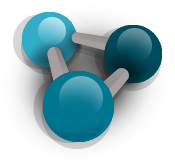In the modern world, domains are like names. Every person and organisation should have one. People need them to relate to you online.
Names are important, which is why (most) parents are so careful about choosing them for their children. A website domain is what people ‘call out’ on Google when they want to find you. And, in much the same way considerate parents name their child, make sure not to call your website something inappropriate, embarrassing, or overused.
To get a domain of your very own, it’s best to go through a hosting provider. You can use a big one like Hetzner, or a smaller one like Texo. It costs about R100.00 for a ‘.co.za’ domain for a year.
Get your own name
Some people think domains are just for businesses. Not true. The internet is an enhanced reality overlaid on the real world. If you want to be an effective part of the real world, you need to be an active part of the online world. You can’t ignore it and get away with it forever.
Just because you’re ignoring it, doesn’t mean everyone else is.
There can be only one ‘www.yournamehere.co.za’, or ‘www.yourorganisationhere.co.za’ – so make sure its you.
You also just can’t register your domain, put up a website with some then current content, and then just leave it around to become dated, stale and irrelevant – but we’ll get to that in a few posts time.
Understand the suffix
Like a surname, a website’s suffix tells people what family it’s from.
We know that ‘.com’ sites come from the ‘ol US of A and other organisations across the globe that want to be taken as seriously.
If you’re making a website for our South African audience, you want to use a suffix which makes sense to them. Many South African’s get annoyed by landing on ‘.com’ sites to find they don’t relate to what’s going on in the southernmost tip of Africa. You can exploit this by using a ‘.co.za’ address to show South African visitors that you’re all about stuff that matters to them.
It might be more appropriate for you to use one of our specialist suffixes, like ‘.org.za’ for non-commercial organizations, ‘.gov.za’ if you happen to run this country, ‘.net.za’ if you’re insane and don’t want anyone to find your website. But, it probably isn’t. No matter what anyone says, people do not take these specialist domains as seriously. Stick to a ‘.co.za’ domain unless you have a really compelling reason not to.
Find the right one
Unlike with naming kids, most of the good domain names are taken.
If you or your organisation shares a name with a celebrity or an organisation that is sufficiently powerful – good luck holding onto www.yournamehere.co.za’ or ‘www.yourorganisationhere.co.za’. Sooner or later, you’ll have lawyers pulling your domain from under your feet. That’s if it isn’t registered already.
For this reason, make sure your domain is unique compared to the other domains in your region. If your domain name is already used with a popular suffix in another country, like ‘.com’, ‘.co.uk’ or ‘.mobi’, then satisfy yourself that it’s owner it’s going to make landfall in South Africa and set its sights on your domain.
Check how it reads
And exactly like the unfortunate children of those unthinking parents who called them something unintentionally awful, look at the domain name you want very carefully together with it’s suffix. Help prevent momentous domain mistakes like ‘expertsexchange.com’ (since corrected to ‘experts-exchange.com’) or ‘itscrap.com’ (the home of IT Scrap).
Parting words
And hey, look at you! You’ve registered your own domain. Well done. You’re taken the first step on your way to creating your own website. I’m so proud.



